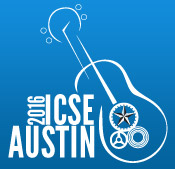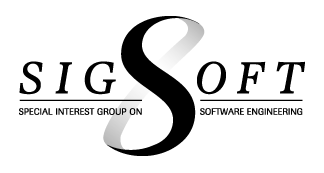
Software Engineering Education and Training
Software Engineering Education in the Age of the Internet
Aims and Scope
The Internet provides a vast resource for innovative use in teaching and training software engineers. Unfortunately, it also provides a vast resource for misuse and abuse by students in a variety of assignment contexts. How can we harness and exploit the Internet to provide innovative approaches to teaching the fundamental principles and techniques in the creation and evolution of software systems? Does, or can, the presence of the Internet fundamentally change the way we can create and evolve software systems. Can we harness the plethora of information on programming languages, the vast variety of programs, and the wealth of research and practice papers in electronic format in a productive way to teach problem and systems design, implementation, and evolution? Can we use the Internet to increase student engagement rather than increasing student distraction?
Topics of Interest
We are looking for contributions that address challenges, innovations, and best practices in software engineering and training. While we welcome submissions on all topics related to software engineering education and training, we are particularly interested in submissions exploring ways of exploiting and integrating the Internet in the education and training of software engineers. We are open to a wide range of topics, including (but not limited to):
- software and system development;
- new best practices for software engineering education and training;
- innovative curriculum or course formats;
- software engineering as applied to other domain disciplines, such as liberal and fine arts, natural and behavioral sciences, and various forms of engineering;
- exploring the widespread adoption of mobile devices;
- individual and (multidisciplinary) team development;
- individual, social and cultural issues;
- global and distributed software engineering;
- cooperation in education between industry and academia;
- methodological aspects of software engineering education;
- continuous education to cope with technological change
Format and Submissions
- Full papers, up to 10 pages, documenting results and findings, where the research presented has followed established research methods;
- Short papers, up to 4 pages, reporting novel approaches that have not been fully evaluated, which will be presented as posters;
- Case study papers, up to 10 pages, reporting on innovative approaches, courses, tools, or delivery formats;
- Panel session proposals, up to 4 pages, which describe the topic to be discussed, explain why this topic will be of interest and give details of the proposed panel membership.
Submissions must adhere to the ICSE 2016 formatting and submission instructions on the ICSE 2016 website: http://2016.icse-conferences.org. Papers must be submitted electronically through the online submission site: https://easychair.org/conferences/?conf=icse2016seet
Evaluation Criteria
Each submission will be reviewed by at least two members of the program committee. Submissions must not have been previously published or concurrently submitted elsewhere. Selections will be made on the basis of originality, significance of contribution, applicability, relation to the goals listed above, relevance for the ICSE audience, discussion of related work, and quality of presentation.
Accepted Submissions
Accepted papers and panel summaries will be published in the ICSE 2016 Companion Proceedings and in the ACM and IEEE digital libraries. The official publication date of the proceedings is the date the proceedings are made available in the ACM Digital Library. This date may be up to two weeks prior to the first day of the conference. The official publication date affects the deadline for any patent filings related to published work.
Important Dates
- Submission deadline: October 23, 2015
- Notification of reviewing decisions: January 22, 2016
- Camera ready due: February 13, 2016
Organization
Janet Burge, Wesleyan University
Dewayne E Perry, The University of Texas at Austin
Rosa Alarcon, Pontificia Universidad Católica de Chile, Chile
Paris Avgeriou, University of Groningen, Netherlands
Muhammad Ali Babar, University of Adelaide, Australia
Rafael Capilla, University Rey Juan Carlos, Spain
Gerald C. Gannod, Miami University, USA
Mark Grechanik, University of Illinois at Chicago, USA
Orit Hazzan, Technion, Israel
Sarah Heckman, North Carolina State University, USA
Mark Hoffman, Quinnipiac University, USA
Janet Hughes, University of Dundee, Scotland
Marcelo Jenkins, University of Costa Rica, Costa Rica
Christine Julien, University of Texas at Austin, USA
Patricia Lago, VU University Amsterdam, Netherlands
Timothy Lethbridge, University of Ottawa, Canada
Collin McMillan, University of Notre Dame, USA
Mehdi Mirakhorli, Rochester Institute of Technology, USA
Judith Stafford, University of Colorado at Boulder, USA
Anthony Tang, Swinburne University of Technology, Australia
Kristen Wallcott-Justice, University of Colorado at Colorado Springs, USA
Charles Wallace, Michigan Technological University, USA
Michal Young, University of Oregon, USA



